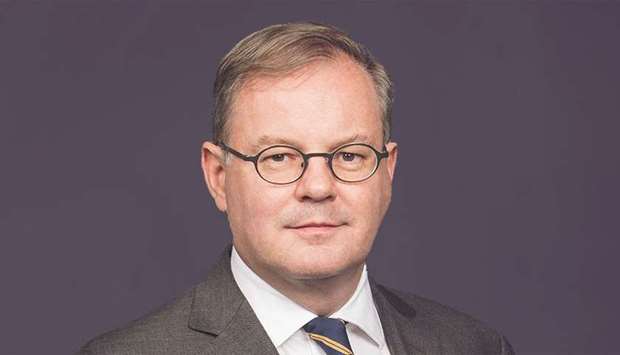The prospects for fintech in Qatar have improved "very well" mainly due to online payments and remittances, as social distancing, a measure to lessen the spread of coronavirus Covid-19, accelerates the need for digital solutions, according to a senior official of the Qatar Financial Center (QFC).
"There has been substantial infrastructure and regulatory work advanced in the country to prepare the grounds for them to succeed in the local context," Henk Hoogendoorn, managing director, Financial Sector Office, QFC, said in an editorial.
Qatar Fintech Hub, of which the QFC is a partner, brings together a vibrant community of fintech entrepreneurs, industry experts, regulators and investors.
The Qatar Central Bank (QCB) recently launched the Qatar Mobile Payment System or QMP, which provides a new and safe method for immediate electronic payment.
HE Sheikh Abdulla bin Saoud al-Thani, QCB governor, had said the central bank is actively working on developing strategies to allow sector players to benefit easily and swiftly from many fintech initiatives and products that are currently on the horizon.
In line with the country's fintech strategy, the Qatar Development Bank has already launched the Fintech Incubator and Accelerator programmes, which will cater to local and global fintech entrepreneurs who are looking for a launch-pad and a hub to accelerate their growth.
Hoogendoorn said globally financial institutions are increasingly looking to tech companies, rather than in-house solutions, to accelerate digital transformation.
With increasingly discerning customers who have increasing demands for efficient and safe services, competition is foreseen to be brisk, according to him.
The big tech firms are increasingly using their extensive rollout of consumer devices to roll out financial service solutions of their own, which could be an additional source of competition in the sector.
"For the fintech organisations that can weather the Covid-19 storm, and partner with banks that have traditionally lagged in adoption of technological innovations, the future certainly looks bright," Hoogendoorn said.
While the fintech sector would continue to experience relative challenges in 2020, he said the" positive outlook" is mostly fueled by "disruptive winners" who will use the power of technology, such as artificial intelligence and Internet of Things, to create efficiency in digital transactions management across the global financial sector.
He said consumer and SME (small and medium enterprises) lending platforms that can deliver capital to key segments of the economy through swift, efficient and flexible mechanisms are in a vastly "better position" during this crisis and beyond.
"As SMEs around the world have been hit hard by the Covid-19 pandemic, traditional lending models are, now more than ever, posing a barrier in accessing funding for SMEs," he said, adding new fintech-based solutions are in a great position to propel economic recovery for SMEs.
Another category of fintechs that holds promise, post Covid-19 period, according to Finch Capital's latest report, is mortgage and life insurance digital solutions that are leaping forward with technology to disrupt the traditional role of intermediaries, whose role was often delivered in a face-to-face capacity.
The pandemic continues to fuel social and economic uncertainty, and fintechs have the capability to reduce stresses and challenges being faced on a number of fronts, he said.
"As social distancing becomes an essential part of daily life, and is subsequently accelerating the need for digital solutions, new opportunities may be created for niche fintech streams with certain winners well-positioned to grow on the back of the ongoing situation," he said.


